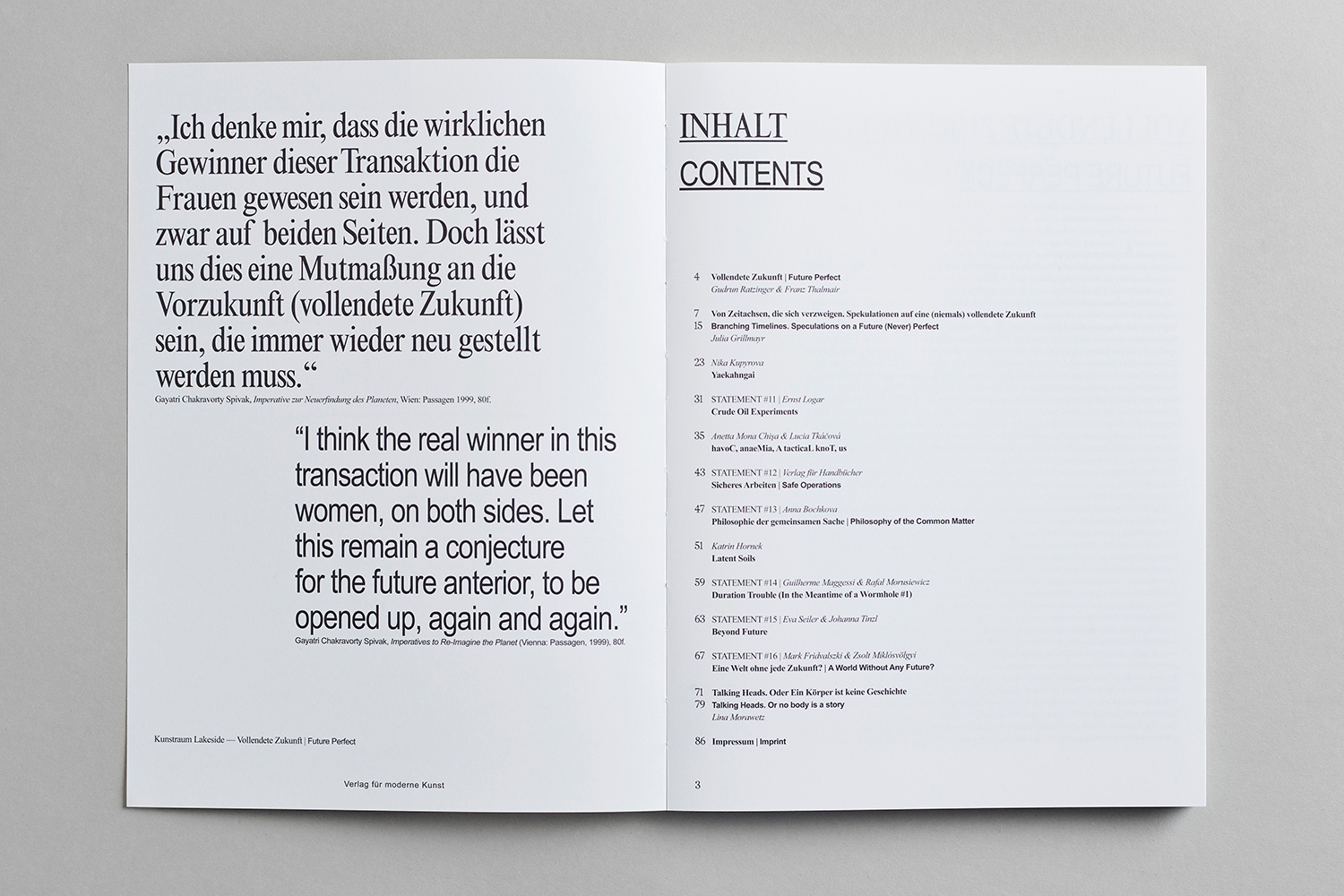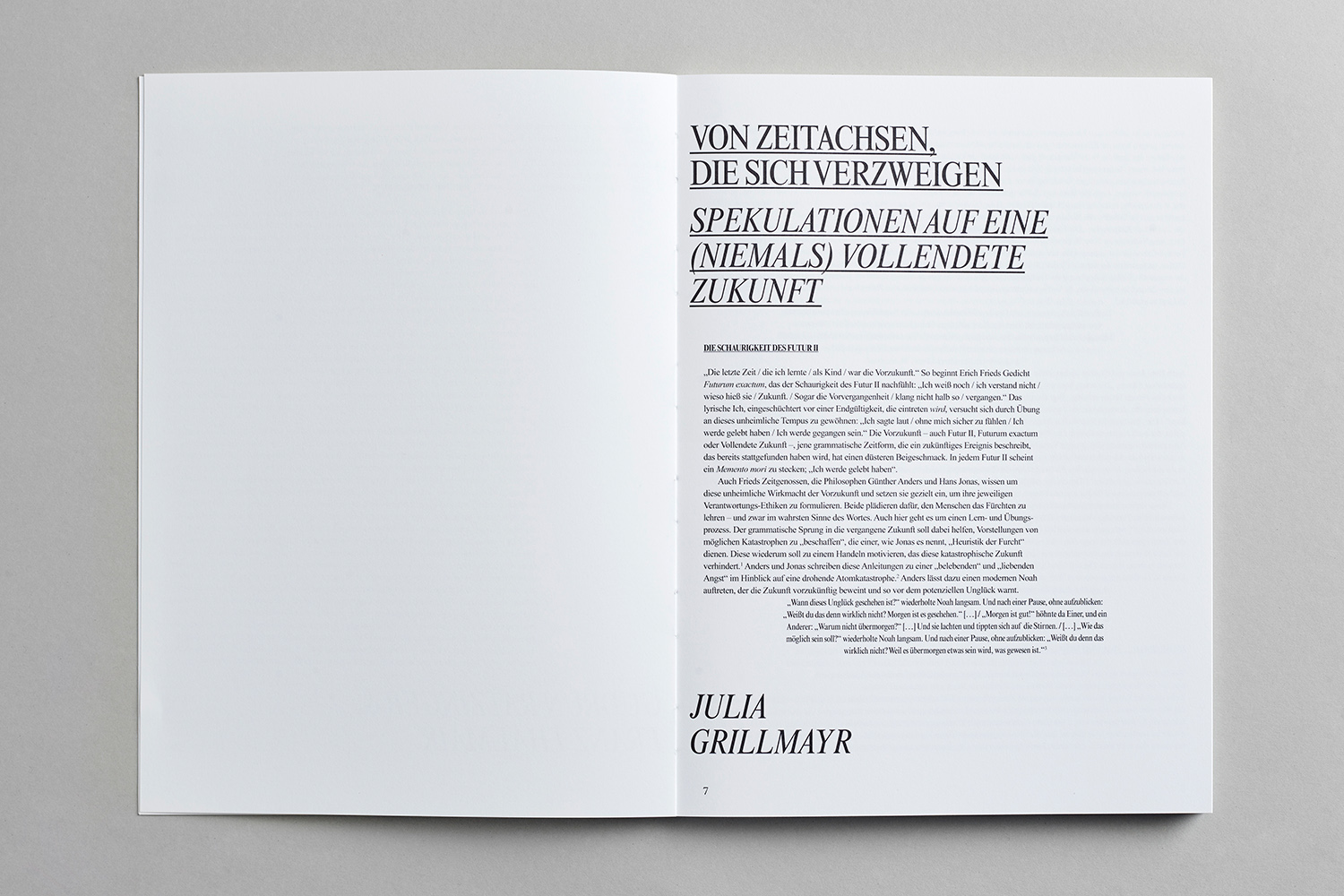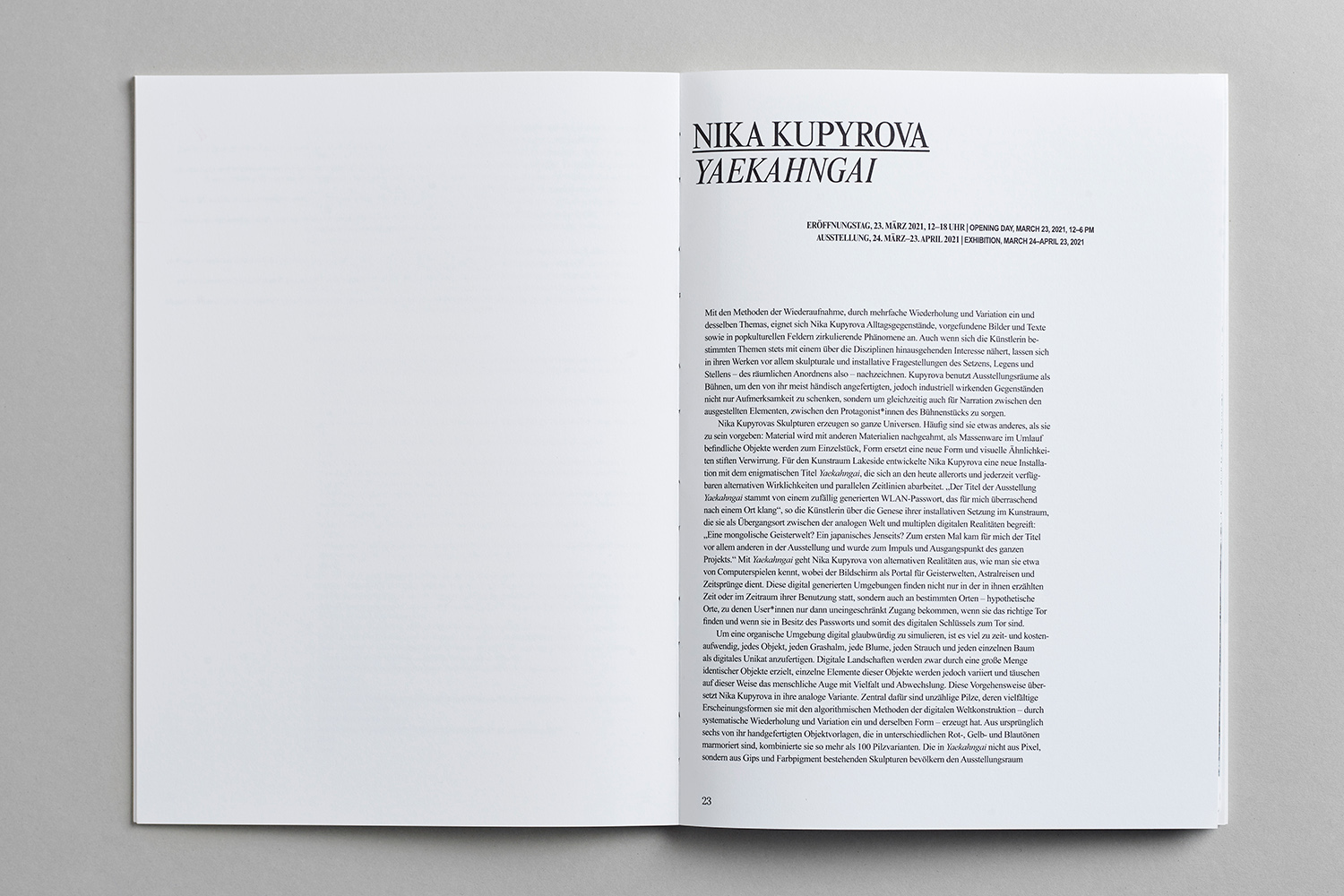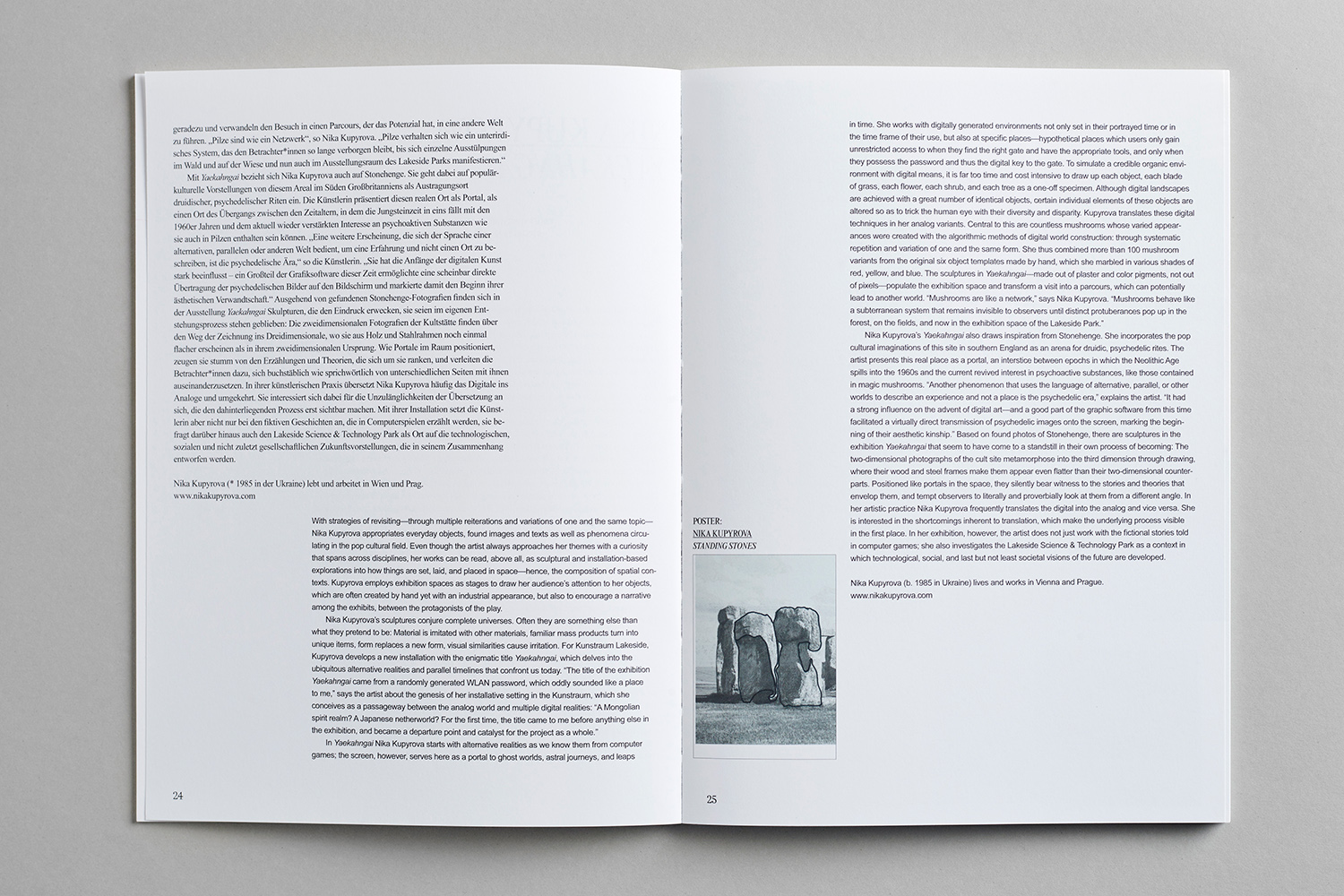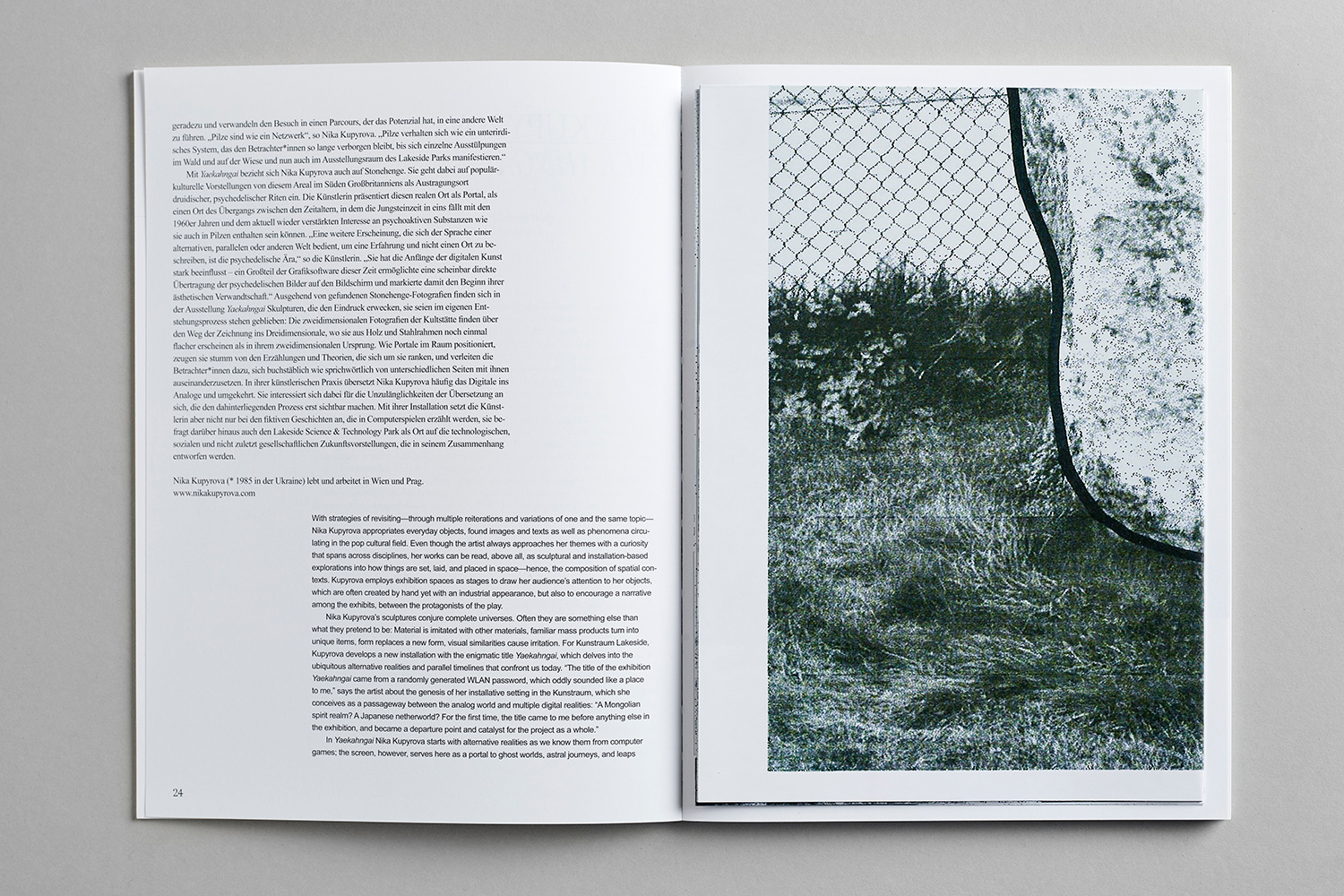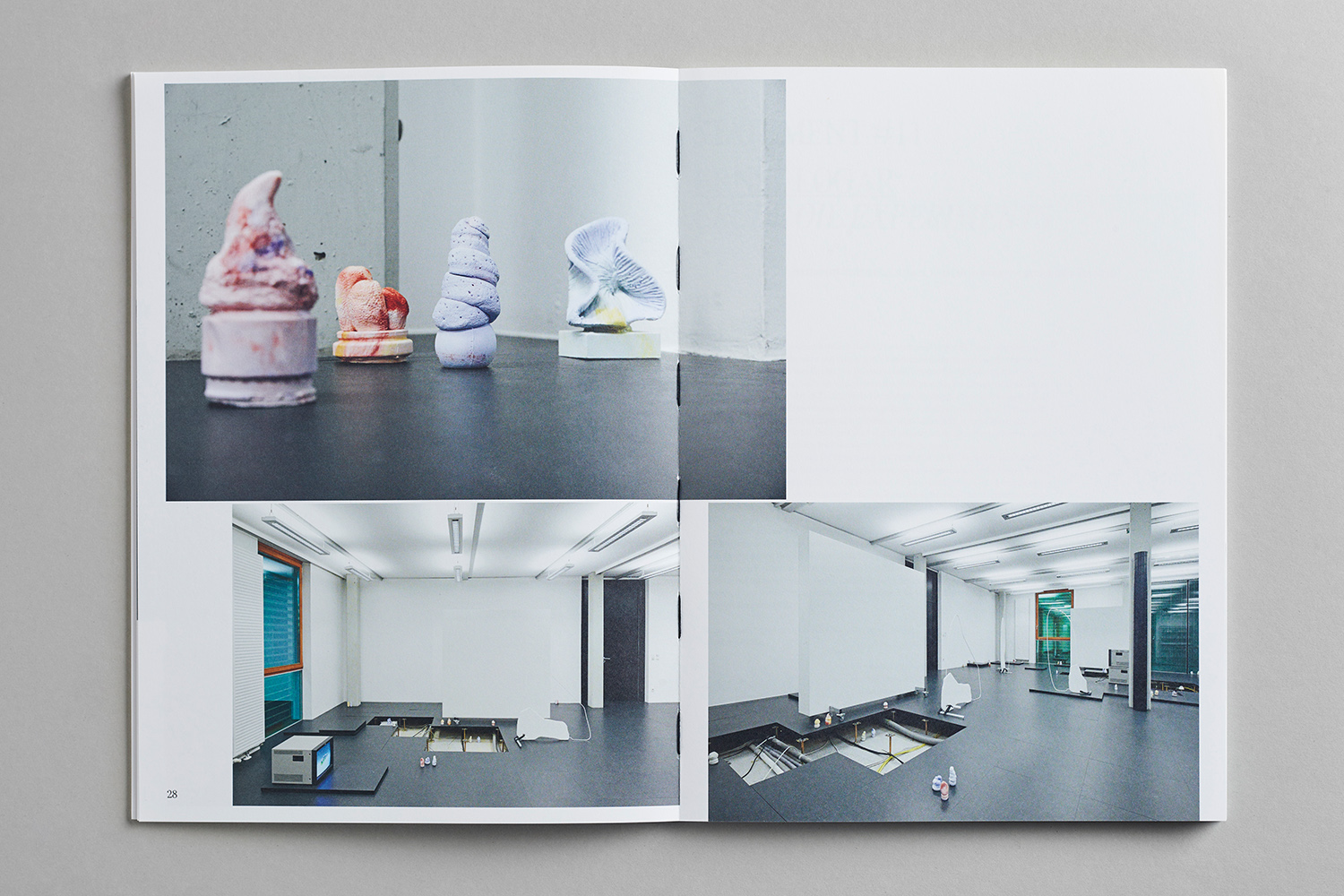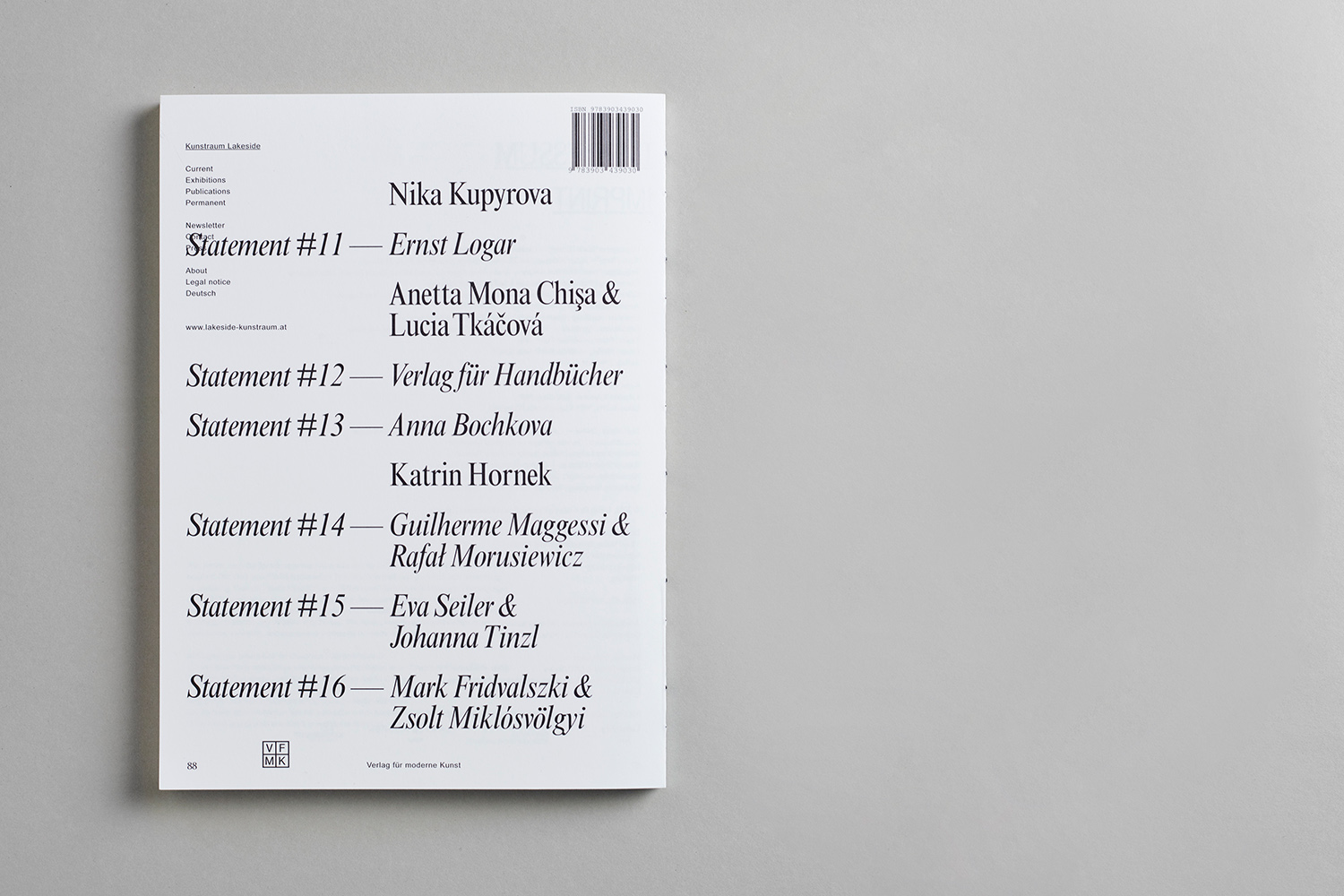Verlag für moderne Kunst, Vienna, 2022
Paperback with open thread stitching, 19 × 26 cm, 88 pages, numerous color illustrations
ISBN 978-3-903439-03-0
Download
Editors: Gudrun Ratzinger & Franz Thalmair
Texts: Julia Grillmayr, Lina Morawetz, Gudrun Ratzinger & Franz Thalmair
Translation: Christine Schöffler & Peter Blakeney | www.whysociety.org
Inserted posters: Anetta Mona Chişa & Lucia Tkáčová, Katrin Hornek, Nika Kupyrova
Graphic design: Studio Kehrer | www.studiokehrer.at
Read online
Branching Timelines
Speculations on a Future (Never) Perfect
By Julia Grillmayr
“The last tense / that I learned / as a child / was anterior future,” begins the poem Futurum exactum by Erich Fried, which tests the eerie waters of future perfect: “I still know / I didn’t understand / why it is called / future. / Even the anterior past / didn’t sound half so / past.” The lyrical I, intimidated by a finality that will occur, tries to get used to this uncanny tense by practicing: “I said aloud / without feeling secure / I will have lived / I will be gone.” Future perfect—also known as Future II, futur antérieur, or futurum exactum—the grammatical tense to describe a future event that will have already taken place, has a bitter aftertaste. Every future perfect seems to contain a Memento mori: “I will have lived.”…
continue

